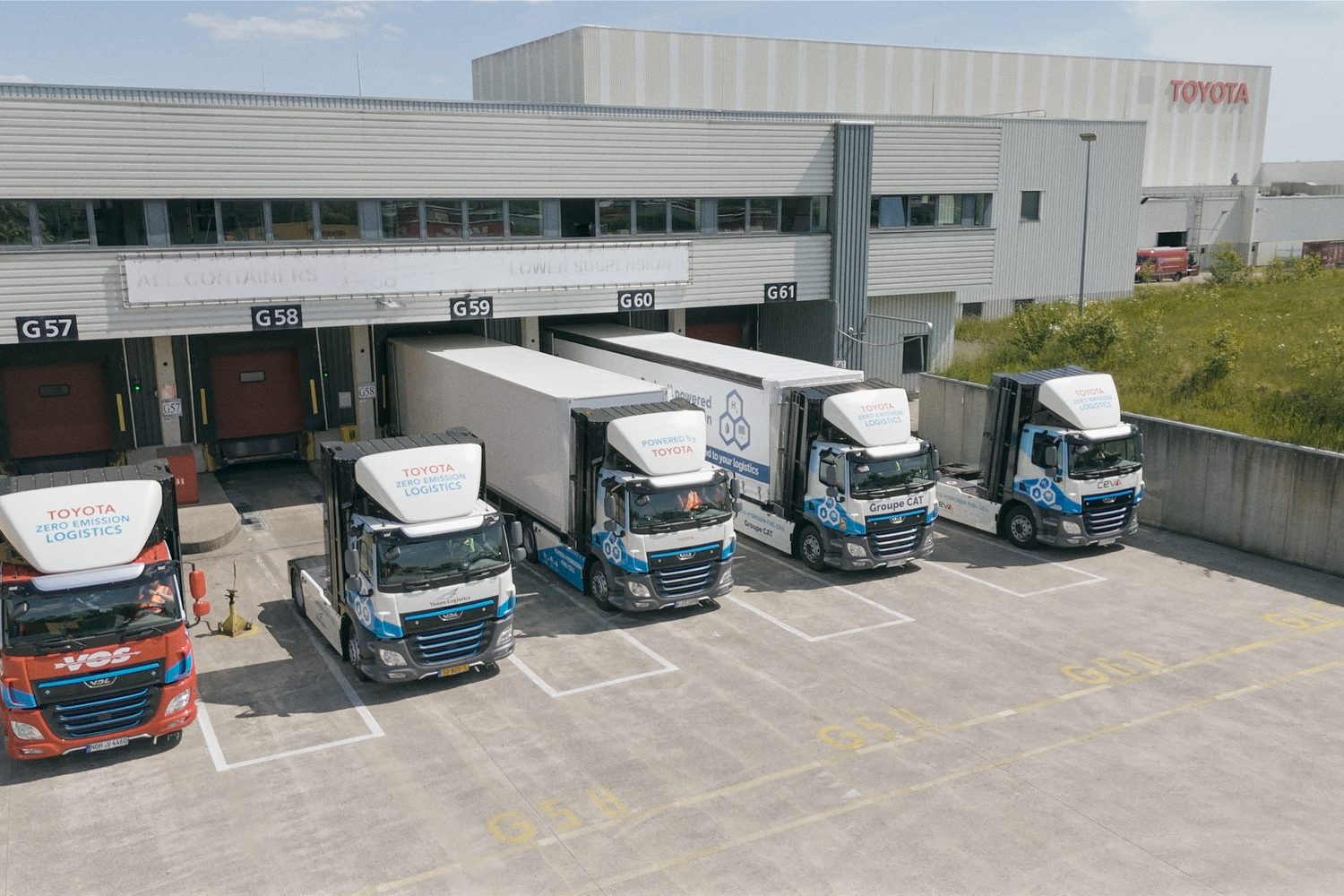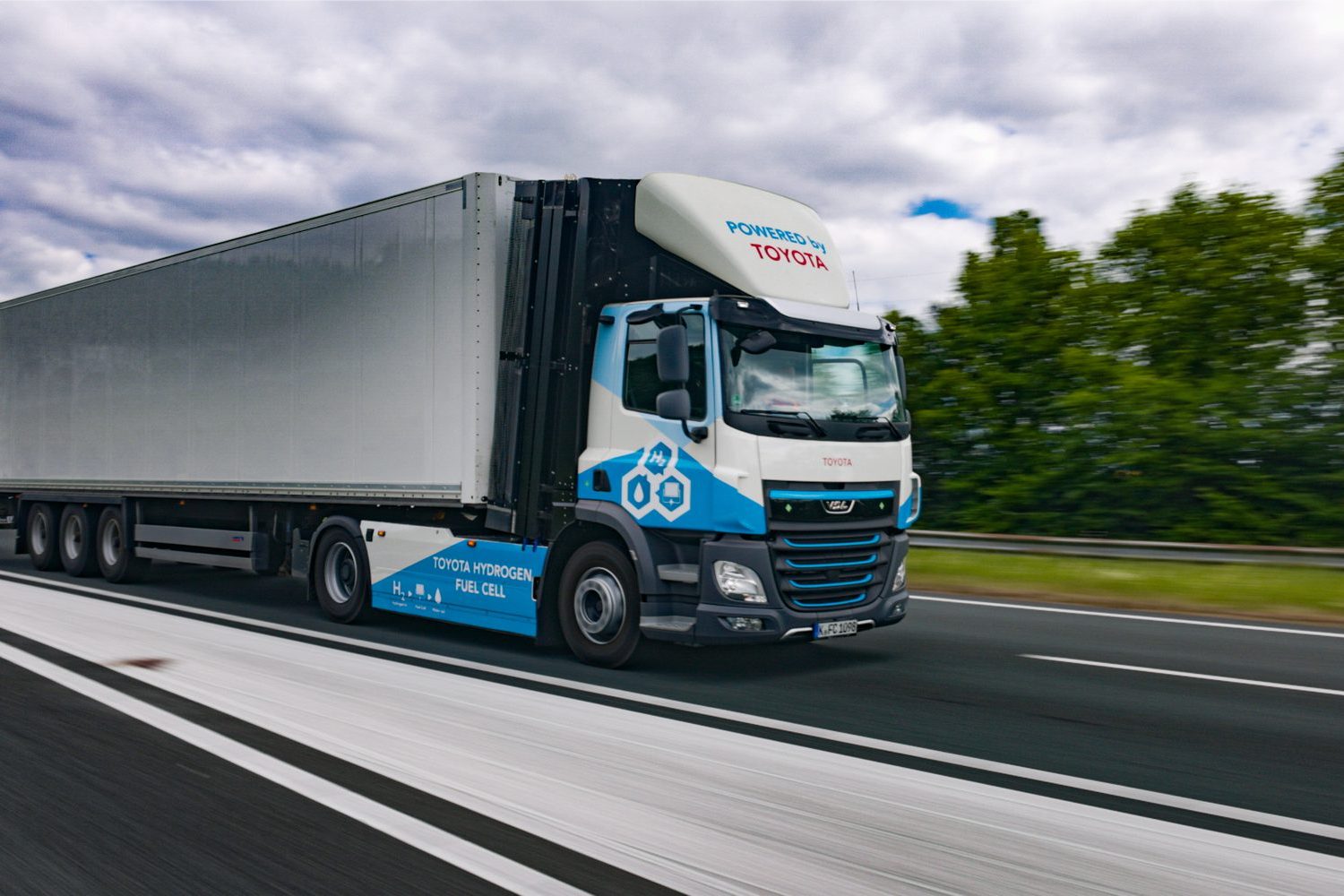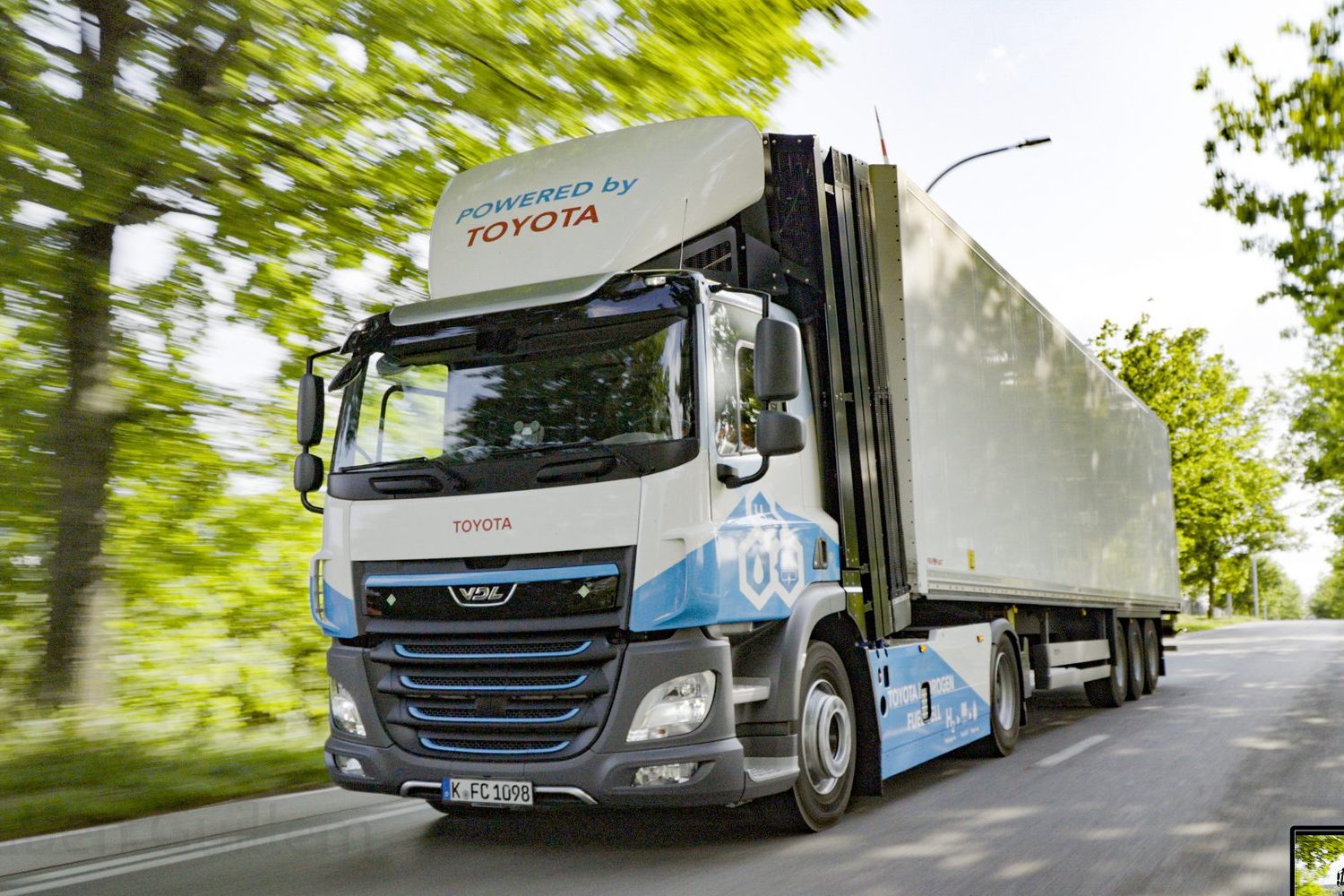When we talk about decarbonising the car industry, there's a lot more to it than just creating a whole bunch of electric cars for people to buy. Electric cars have to be made in factories, which also need to be switched over to renewable energy, while the distribution of parts and components also needs to be worked on.
Sounds like someone's come up with a solution...
They certainly have, or at least in this case Toyota certainly has. At the risk of stating the obvious, Toyota is a huge player in the European car market, and that means that it needs to move lots and lots of parts and components around, shuttling between factories, ports and warehousing. Toyota Motor Europe, and its Toyota Parts Centre Europe operation, reckons that it processes more than 500,000 parts and accessories every day.
That's a lot of parts...

Indeed so, and up until now those parts have been - as with most goods from most industries - shuffled around in the back of diesel-powered trucks. However, that's changing and following a pilot project last year to use a truck powered by hydrogen, Toyota has now added four more hydrogen trucks to its parts and logistics fleet.
Where do the truck operate?
Toyota's parts operations span four countries - Belgium (Diest), France (Lille), Germany (Cologne) and the Netherlands (Rotterdam and Weesp). Toyota has worked with truck maker VDL Groep to integrate Toyota-designed hydrogen fuel cells to replace the old diesel engines, and those trucks are being used by Toyota's logistics partners - Vos Transport Group, CEVA Logistics, Groupe CAT and Yusen Logistics.

How far can these trucks go?
Toyota and VDL claim that their 40-tonne H2 trucks can operate in much the same way as a conventional diesel truck, and that with one fill-up, they can travel for up to 400km in real-world driving conditions. Their fuel cells chemically combine hydrogen stored in a tank with oxygen from the outside air, a process which generates two things - an electrical current, which can power an electric motor, and water vapour, which is the only emission from these trucks. Toyota even claims that the H2 trucks are nicer for their drivers to use, as there's no diesel shudder and rattle.
“This initiative is in line with Toyota's goal to reach carbon neutrality in its logistics operations by 2040, but it also aims to contribute to growing the hydrogen economy. Heavy-duty fuel cell trucks can boost the demand for hydrogen, which is one of the key contributors along with the implementation of the EU's Alternative Fuel Infrastructure Regulation (AFIR). Together with our logistics providers, we aim to gather learnings from the daily operation of our first hydrogen-powered logistics fleet and further improve the vehicles and operational processes,” said Thiebault Paquet, Vice President R&D, Toyota Motor Europe.



